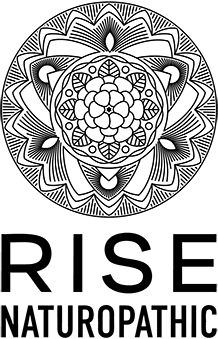TRADITIONAL CHINESE MEDICINE
TCM is an ancient, 2500 year old practice of diagnosing and treating disease states in an individual based on the concept that the smooth flow of Qi (life force energy) in the body equals a state of true health. TCM practitioners believe that Qi runs throughout various ‘meridians’ or channels in the body that have names matching anatomical organ systems – i.e. the Liver or Spleen channel – but which have little to no correlation to the actual functioning of those organ systems.
If the natural flow of Qi is blocked or pooling somewhere, pathology results. Aside from Qi, an unwell patient may also be said to have a disequilibrium of Yin, Yang, or “Blood”. Treatments correcting for such imbalance may consist of acupuncture, herbs, dietary modifications, moxabustion (specific herbs burned over certain acupuncture sites) or cupping, either in isolation or combination.
HEALTH PSYCHOLOGY & LIFESTYLE COUNSELLING
Whether through use of motivational interviewing, cognitive-behavioural techniques, mindfulness or meditation and breathing practices, this modality serves primarily to tie the loosened connection between the mind, body and spirit. Once we can recognize the cause of uncomfortable physical sensations and erroneous thought patterns, we can begin to regain control over what seems automatic. Whether as talk or homework-based therapy, guided breathing spaces and meditations, or life coaching and support for stress at home or work, this modality may take various forms and shapes.
BOTANICAL MEDICINE
Cultural traditions across the globe hold ancient medicinal wisdom in the botanicals they’ve used and studied for millennia. Botanical medicine describes the use of herbs for their unique healing properties which vary according to their biochemical structure. Botanical healing is the use of specific parts of a plant – roots, leaves, petals, fruit – for it’s particular constituents and the actual effects these have in the body if consumed or used topically. Depending on your unique concerns, an ND might use the dried leaves of one plant, for example, as an anti-anxiety agent and combine this with the flowering parts of a different plant for its hypotensive effects. With this deep knowledge of botanicals, your naturopathic doctor can design a tea, tincture, salve, decoction or other preparation with your particular case in mind. In this way, botanical prescriptions are almost never set protocols, and almost always made just for you.
HOMEOPATHY
An energetic medicine that uses a complete picture of who you are and how you express illness to precisely match a remedy to you. This process of learning who and how you are occurs through rigorous questioning regarding many aspects of your life. The remedy that is chosen for you is, in most cases, either of plant, animal or mineral origin but is prepared in a way that contains little to no molecules of the original matter in the final remedy. In homeopathy, the greater the dilution of starting material, the greater the strength or ‘potency’ – it is the idea that as we remove the physical aspects of a material, we concentrate it’s energy or vital strength.
In short, the remedy is an ultra-high dilution and generally delivered to the patient on a small white pellet of sugar to be placed under the tongue.
CLINICAL NUTRITION
“Diet” – habitually taken food and drink.
Our diet is our everyday fuel and nourishment. It is what we consume every day, not a pre-scripted, one-size- fits-all weight loss plan. The foods we select daily quite literally make up our constitution. Keeping the preponderance of our diet filled with foods from the Earth and, better, foods free of chemicals and growing naturally near to us, provides a healthy foundation. Naturopaths use clinical nutrition to prescribe additions, subtractions and portion modifications to eating and drinking patterns that may be causing harm. At ease with the knowledge that no ‘universally right’ diet exists for everyone, NDs take the patient’s family history, lifestyle, affinities, aversions, as well as personal health risks and goals into account when making a nutritional prescription.
PHYSICAL MEDICINE
In the context of Naturopathy, physical medicine is a vast modality comprising many approaches and techniques:
Hydrotherapy – therapeutic saunas, baths, thermal body wraps
Manual therapies – spinal mobilizations/adjustments, trigger point release, massage
Physiotherapeutic devices – TENS, Laser, Ultrasound
Exercise-based prescriptions – stretching, strengthening
These physical therapies are beneficial in returning function to the body, reducing pain and discomfort and addressing the root cause of physical imbalances. These treatments are always prescribed alongside lifestyle adjustments – ergonomic or postural changes for example – to better health outcomes.


